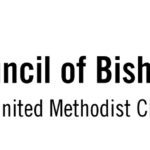It seems like something around the house is always breaking. I’m impressed with the people who can figure out how to fix the problems, no matter how difficult the issue. My Grandpa Conrad and my Dad were both that kind of person. Evidently this ability skipped a generation with me! Even some of the easiest challenges can stump me.
One of the features that I like about our master bedroom is that it has double doors. One door latches shut, while we use the other door for normal use. The latch, however, would only barely catch. This wouldn’t be a problem except that our twelve-year old dog likes to sleep against the door. If she leaned against the door long enough, it would eventually come open. Our dog is not allowed in our room, but she loves to snoop around if she can find a way in!
The first thing that I looked at was to see if the hinges needed adjusting. They looked fine. I can’t imagine that this has been a problem since our house was built twenty-two years ago, though I can’t see where the door has shifted. The latch just didn’t line up with the hole that it needs to go into. There is a brass plate that goes over the hole, which also seemed to be on backwards. The latch was just catching the edge of the brass plate enough to keep it shut. It was obvious to me that the hole for the latch needed to be a little bit bigger. I looked in the garage for a file that would do the job, but I couldn’t find one that would fit the hole (I couldn’t even find any sandpaper). This, of course, meant that I needed to buy a new tool! With a small round file, I was (surprisingly) able to enlarge the hole enough for the latch to fit. I reversed the brass plate, and now the door stays securely shut.
Part of what I have learned over fifty-four years of life is that a major key in fixing or making things is to have the right tools—and know how to use them! With the right file, it didn’t take me long to fix the door. Without the file, this could have been a difficult fix.
Part of being a Christian is adding spiritual disciplines into our lives and learning how to use them. These “tools” make it possible for us to deal with difficult life situations. Prayer is an example of one of these disciplines. I’ve noticed a trend of people saying, “I don’t want your prayers and thoughts—I want action!”. I see prayer doing multiple things—including guiding us into action! For me, prayer is a way of connecting with God. It helps us to get past our thoughts, and to hear what God is saying. Most of the time God’s answers are different than what we come up with. Prayer focuses us on people and situations; and encourages us to not forget them. I don’t think that we have to use prayer to convince God to take action, but I do think that God wants to know that we care. Prayer is one way to do this.
Spiritual disciplines can do such things as eliminate worry from our lives. Does anyone need to hear this message? I have been amazed by the power that worry can have over our lives. It can have both emotional and physical consequences. Practicing spiritual disciplines that focus on faith can eliminate the choice of (some would say “the need to”) worry.
So many times over the years I have heard people say: “Life didn’t come with any instructions”. I disagree with this statement! We have been given scriptures in the Bible that informs us on how we can live our lives. This is a “tool” that many people possess, but often don’t know how to use. I find the Bible at times to be difficult to understand, while at the same time it fascinates me! The Bible is the only book that I have found that says different things to me every time that I read it. I have found this Biblical wisdom to have a great impact on my life! How about you?
As a church, are we seeing the struggles that people are facing? Do we believe that Christianity can help them? How convinced are we that this is the case? Why are we staying so quiet?!? It is important that as we learn how to use Christian spiritual disciplines, that we don’t keep the knowledge to ourselves. Each of us should have at least one person (maybe more) that we are encouraging to become a Christian. If our Christian walk is mature enough, we might even be a mentor for other people. At our churches, we should have clear processes where people can learn how to gain, and use, Christian “tools” that will help them as a disciple. Is this happening at your church? If not, how come?
Too often churches are focusing on the needs of the church. Jesus has taught us to focus on the needs of the people. These are two very different focuses that will have very different results.
Your brother on the journey, Mark
Health update: I’m enjoying life without a kidney stent!





